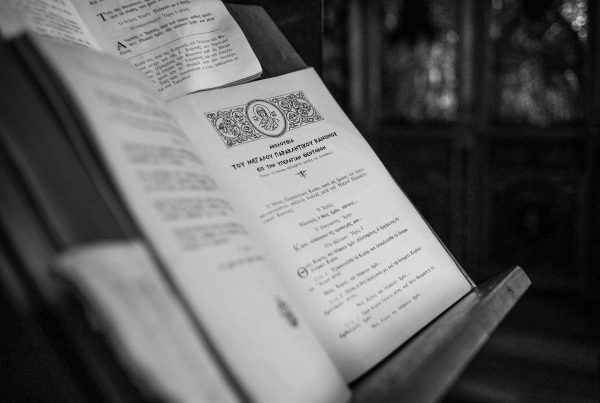 INTUITIONISM
INTUITIONISM
 AESTHETICS
AESTHETICS
AESTHETICS
 PHILOSOPHY OF RELIGION
PHILOSOPHY OF RELIGION
PHILOSOPHY OF RELIGION
 WRITING PHILOSOPHY
WRITING PHILOSOPHY
WRITING PHILOSOPHY
 EPICUREANISM
EPICUREANISM
EPICUREANISM
 BRANCHES OF PHILOSOPHY
BRANCHES OF PHILOSOPHY
BRANCHES OF PHILOSOPHY
 GRADING CRITERIA FOR PHILOSOPHY ESSAYS
GRADING CRITERIA FOR PHILOSOPHY ESSAYS
GRADING CRITERIA FOR PHILOSOPHY ESSAYS
 LIBERALISM
LIBERALISM
LIBERALISM
 NATURAL PHILOSOPHY
NATURAL PHILOSOPHY
NATURAL PHILOSOPHY
 GUIDES TO PHILOSOPHICAL WRITING
GUIDES TO PHILOSOPHICAL WRITING
GUIDES TO PHILOSOPHICAL WRITING
 BIOETHICS
BIOETHICS
BIOETHICS
 EMPIRICISM
EMPIRICISM
EMPIRICISM
 PHILOSOPHY OF LANGUAGE
PHILOSOPHY OF LANGUAGE
PHILOSOPHY OF LANGUAGE
 NON-WESTERN PHILOSOPHICAL TRADITIONS
NON-WESTERN PHILOSOPHICAL TRADITIONS
NON-WESTERN PHILOSOPHICAL TRADITIONS
 MIDDLE EASTERN TRADITIONS
MIDDLE EASTERN TRADITIONS
MIDDLE EASTERN TRADITIONS
Logic
Books
-
Only the Lover Sings: Art and Contemplation
$11.95 -
Genome: The Autobiography of a Species in 23 Chapters
$9.99 -
Philosophical Inquiries into Pregnancy, Childbirth, and Mothering: Maternal Subjects (Routledge Studies in Contemporary Philosophy)
$68.95 -
Essays of Michel De Montaigne
$7.95 -
Process and Reality (Gifford Lectures Delivered in the University of Edinburgh During the Session 1927-28)
$18.60 -
World Tales (Pocket Edition): Book IV
$5.02 -
Social Acceleration: A New Theory of Modernity (New Directions in Critical Theory, 32)
$31.47 -
The Consolation of Philosophy (Mint Editions (Philosophical and Theological Work))
$12.69 -
The Rebel
$172.60 -
People of the Lie: The Hope for Healing Human Evil
$15.95 -
Beyond Good and Evil
$6.99 -
Classical Islamic Philosophy
$46.95 -
How to Know a Person: The Art of Seeing Others Deeply and Being Deeply Seen (Random House Large Print)
$32.00 -
Muscular Christianity: A Case for Spiritual and Physical Fitness
$19.99 -
Science of Being
$22.00 -
The Wise Heart: A Guide to the Universal Teachings of Buddhist Psychology
$15.99
Reexamining Spacetime Substantivalism: A Critique of Modal Arbitrariness and Determinism in Teitel’s Framework
Reexamining Spacetime Substantivalism: A Critique of Modal Arbitrariness and Determinism in Teitel’s Framework
Rule-Following and Artificial Intelligence: A Kripkean Perspective
The Eternal Coexistence of Consciousness and Spacetime: A Philosophical Inquiry
Embracing Contradiction: An In-Depth Analysis of Dialetheism
Analysis of, and Responses to Edmund Gettier’s “Is Justified True Belief Knowledge?”
The Unstable Foundation: A Critique of the Ontological Proof of God’s Existence
Meta-Modal Actuality: A Dynamic Framework for Possibility, Actualization, and Causality
Killing, Morality, and the Human Condition: A Philosophical Investigation
The Intricacy of Existence: A Philosophical Exploration of Complexity, Contingency, and Divine Agency
The Ethics of Procreation and the Rational Acceptance of Life: A Critical Engagement with Weinberg’s Argument
Imagination, Consciousness, and the Nature of the Soul: A Philosophical Inquiry
The Interplay of Karma, Rebirth, and Non-Self in Buddhist Philosophy: A Metaphysical Inquiry
Metaphysical Perspectives: A Comparative Analysis of Theism and Atheism
The Infinite Universe, Death, and the Search for Meaning: A Philosophical Exploration of Existence, the Divine, and Human Mortality
The Unconscious Artistry of Artificial Intelligence: A Modern Reflection on Spinoza’s God and the Blind Watchmaker
The Ethics of Procreation and the Rational Acceptance of Life: A Critical Engagement with Weinberg’s Argument
- Atomos
- AESTHETICS
- ENVIRONMENTAL PHILOSOPHY
- EPISTEMOLOGY
- ETHICS
- EXISTENTIALISM AND PHENOMENOLOGY
- FEMINIST PHILOSOPHY
- GLOBAL AND COMPARATIVE PHILOSOPHY
- HISTORICAL PERIODS OF PHILOSOPHY
- LOGIC
- METAPHYSICS
- PHILOSOPHY OF EDUCATION
- PHILOSOPHY OF HISTORY
- PHILOSOPHY OF LANGUAGE
- PHILOSOPHY OF LAW
- PHILOSOPHY OF MIND
- PHILOSOPHY OF SCIENCE
- PHILOSOPHY OF TECHNOLOGY
- POLITICAL AND SOCIAL PHILOSOPHY
Terms & Concepts

Conditional introduction (Conditional proof)






























































